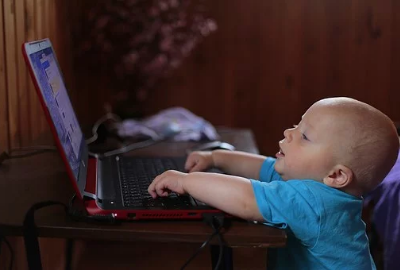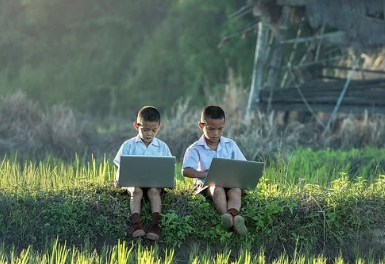
how to protect your kids online
During these uncertain times with the pandemic coronavirus and families
Quarantined to avoid exposure, it’s not surprising that most of us spend more
Time on our devices than anything else. Right?
This is completely understandable!
Regardless of the dilemma of the Coronavirus, my main concern is like us
Children no longer had a real traditional childhood instead.
Interact online with the whole world!
While this can have some advantages, it also means that they are missing in many cases
Development opportunities that we were able to experience as parents as children. This is really BAD news! {Here}.
keep your child safe online:
The sad truth is that this makes them so vulnerable and makes them targets to
predators of all kinds.
Cyber Bullying, gaming addiction (and the rest) is no laughing matter!
And you agree that their attitude can turn ugly when they are challenged about it?
The good news is that there are quick wins to reduce screen time. {Here}.
protecting your child’s privacy online:
If it was already bad before this crisis, then it’s only going to get worse as
your child spends more time indoors and, ultimately, interacting online.
Gone are the days where the parent’s worst nightmares about their children and tweens were catching them smoking behind their parent’s backs or illegally drinking alcohol at parties and getting into fights.
But did you know that gaming addiction and cyberbullying is just as real, and if not,
just as bad?
how to protect kids’ privacy online a guide for teachers
Not only is this addiction to the online world a problem, it makes children,
tweens and teens much more vulnerable to predators who pose as others of
their own age group and can keep this up for weeks and months before they strike!
Here’s a thought for you check this out …{Here}.
Data security is also an issue and you just don’t know how much private data have already been harvested from predators and scammers who intend to use this information with very malicious intent.
And let’s not get started with uncensored photos … could they be circulating around the internet and dark web?
how can you protect your child online?

protect your child from online predators
If you do nothing, this will continue and who knows how bad your child and
home life could get?
Here’s a successful way to keep your child safe online, without the battles!{Here}.
Talk soon!
During these uncertain times with the Corona Virus pandemic and families
in quarantine to avoid exposure, it’s no wonder that most of us spend more
time on our devices than anything else. Right?
That’s totally understandable!
So with the Coronavirus dilemma aside, what concerns me the most is how our kids are no longer experiencing real traditional childhood and, instead, they are stuck online interacting with the whole world!
Whilst this may have some benefits, this also means they are missing out on a lot of developmental opportunities that we as parents got to experience as children.
This is really BAD news! {Here}.
how to keep kids safe online children advice
The sad truth is that this makes them so vulnerable and makes them targets to predators of all kinds.
Cyber Bullying, gaming addiction (and the rest) is no laughing matter!
And you agree that their attitude can turn ugly when they are challenged about it?
The good news is that there are quick wins to reduce screen time. {Here}
If it was already bad before this crisis, then it’s only going to get worse as
your child spends more time indoors and, ultimately, interacting online.
Gone are the days where the parent’s worst nightmares about their children and tweens were catching them smoking behind their parent’s backs or illegally drinking alcohol at parties and getting into fights.
But did you know that gaming addiction and cyberbullying is just as real, and if not, just as bad?
Not only is this addiction to the online world a problem, it makes children,
tweens and teens much more vulnerable to predators who pose as others of
their own age group and can keep this up for weeks and months before they strike!
Here’s a thought for you check this out …{Here}.
Data security is also an issue and you just don’t know how much private data have already been harvested from predators and scammers who intend to use this information with very malicious intent.
And let’s not get started with uncensored photos …
could they be circulating around the internet and dark web?
If you do nothing, this will continue and who knows
how bad your child and home life could get?
Here’s a successful way to keep your child safe online, without the battles!
Do You know how to keep your kids safe online without the usual fights, sabotage or workarounds?
Stop teaching your kids being safe online with old school methods, where you (but not your kid) are so comfortable with.
Communicate in such a way that your children are naturally aware of the risks.
Nothing will change if you don’t do anything about it.
Many parents have succeeded in this successful 4-step method.
You don’t have to know everything yourself and be alone.
Some facts: sex
20% of teenagers have sent or posted nude or semi-nude photos or videos of themselves.
In addition, 11% of teenage girls between the ages of 13 and 16 sent or posted (semi) nude photos or videos. 39% of all teenagers send or post sexually stimulating messages.
When a teenager sends or publishes nude pictures of themselves, 15% say they did it with someone they only know online. 48% of teenagers received such messages, 71% of teenage girls and 67% of teenagers who sent or published sexually stimulating content said that they had sent or posted this content to a friend.
44% of teenage girls and boys say sexually stimulating text messages are often shared with people other than the intended recipientUSJJJ. It is common for 36% of teenage girls and 39% of teenage boys to share nude pictures (fields) with people other than the intended recipient.
51% of teenage girls say their boyfriend’s pressure is why girls send sexy messages or pictures. Only 18% of teenagers give their colleagues’ pressure as the reason.
The most common reason for posting exciting content is that 66% of teenage girls and 60% of teenage boys say they did this to be “funny or flirtatious”.


